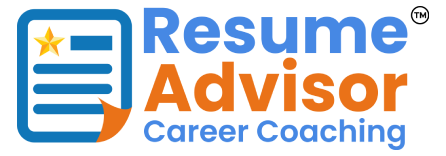
A well-crafted resume is your ticket to landing interviews, but without the right skills for resume, even the best formatting won’t help. Hiring managers scan resumes in 6-7 seconds, so showcasing the most relevant and in-demand skills is crucial.
In this guide, you’ll learn:
- Hard vs. Soft Skills – Which to prioritize?
- Top Industry-Specific Skills for 2025
- How to List Skills on a Resume (ATS-friendly formatting)
- Expert Tips from Resume Advisor to maximize impact
Let’s dive in!
Why Are Skills Important on a Resume?
Recruiters and Applicant Tracking Systems (ATS) scan resumes for keywords—primarily skills for resume that match the job description. According to a LinkedIn study, candidates with the right skills get 50% more interview calls.
Jonathan from Resume Advisor explains:
"Your skills section acts as a quick snapshot of your capabilities. If it doesn’t align with the job requirements, your resume may get rejected before a human even sees it."
Hard Skills vs. Soft Skills: What’s the Difference?
1. Hard Skills (Technical Abilities)
- Definition: Teachable, measurable abilities (e.g., coding, data analysis).
- Examples:
- Python, SQL, Excel
- Digital Marketing (SEO, PPC)
- Project Management (Agile, Scrum)
2. Soft Skills (Interpersonal Abilities)
- Definition: Personality-driven traits (e.g., communication, leadership).
- Examples:
- Problem-Solving
- Team Collaboration
- Emotional Intelligence
Resume Advisor recommends:
"A strong resume balances both hard and soft skills. Technical skills get you noticed, but soft skills prove you’ll fit the company culture."
Top Skills for Resume in 2025 (By Industry)
1. Technology & IT
- Hard Skills: AI/ML, Cloud Computing (AWS, Azure), Cybersecurity
- Soft Skills: Adaptability, Critical Thinking
2. Healthcare
- Hard Skills: EHR Systems, Patient Care, Medical Coding
- Soft Skills: Empathy, Attention to Detail
3. Marketing & Sales
- Hard Skills: Google Analytics, CRM Software (Salesforce)
- Soft Skills: Negotiation, Creativity
4. Finance & Business
- Hard Skills: Financial Modeling, Risk Management
- Soft Skills: Decision-Making, Leadership
For a customized skills list, Resume Advisor offers one-on-one coaching to align your resume with industry trends.
How to List Skills for Resume (ATS-Optimized)
1. Create a Dedicated Skills Section
- Use bullet points for readability.
- Group related skills (e.g., "Technical Skills," "Languages").
Example:
Technical Skills: Python, SQL, Tableau
Soft Skills: Leadership, Team Collaboration
2. Match Skills to the Job Description
- Scan the job posting for keywords (e.g., "Proficient in Excel").
- Use exact phrases to pass ATS filters.
3. Prove Skills with Achievements
- Instead of just listing "Project Management," add:
- *"Led a cross-functional team, delivering a $500K project on time."*
Resume Advisor Tip:
*"Avoid overloading your resume with skills. Focus on the top 10-15 most relevant ones."*
Common Mistakes When Listing Skills
- Too Vague – "Good communicator" → "Presented to 50+ stakeholders."
- Outdated Skills – "MS Office" (unless specified in the job description).
- Irrelevant Skills – Avoid listing hobbies unless they add value (e.g., "Photoshop" for a designer).
Final Tips from Resume Advisor
- Prioritize Skills Near the Top – Recruiters often skim the first third of your resume.
- Use a Mix of Synonyms – "Data Analysis" vs. "Quantitative Research."
- Update Regularly – Add new certifications or tools you’ve learned.
"Your resume should evolve as your career grows," says Jonathan from Resume Advisor.

